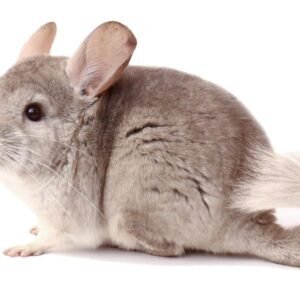Understanding Chinchillas: Characteristics and Care
Chinchillas are fascinating pets, known for their friendly demeanor and social nature. These small rodents, native to the Andes mountains of South America, have unique characteristics that make them intriguing companions. Their plush, velvety fur, which is among the softest in the animal kingdom, is a notable feature that draws many pet enthusiasts. Chinchillas possess a curious disposition and thrive on interaction, often exhibiting playful behaviors that endear them to their owners.
In their natural habitat, chinchillas live in colonies, utilizing their social instincts to communicate with one another. This social nature extends to their interactions with humans, highlighting the importance of companionship for these animals. When kept in captivity, chinchillas require a spacious and stimulating environment to thrive. A suitable habitat setup involves a multi-level cage that allows for climbing, along with safe, chewable materials to satisfy their natural instincts. It is imperative to ensure that their living space is secure to prevent potential escapes, as chinchillas are known to be agile jumpers.
Providing the appropriate diet is crucial for the health of chinchillas. Their digestive systems are sensitive; hence, a high-fiber diet, primarily consisting of grass hay, is recommended. Pellets formulated specifically for chinchillas can serve as supplemental nutrition. Fresh water should always be available to maintain hydration. Grooming is another essential aspect of chinchilla care, as their dense fur can trap moisture and dirt. Regular dust baths using special chinchilla dust help keep their coat clean and healthy.
Temperature control is vital, as chinchillas are susceptible to heat stress. Ideal ambient temperatures should range between 60°F and 70°F, which helps prevent overheating. Enrichment activities, such as tunnels and exercise wheels, can promote mental stimulation and physical health, ensuring that chinchillas remain happy and lively. By understanding these facets of chinchilla care, prospective owners can create a nurturing environment that fosters the well-being of these delightful small pets.
Health Considerations and Common Issues in Chinchilla Care
Chinchillas are delightful pets, but they require attentive care to maintain their health and well-being. One of the primary health concerns faced by chinchillas is dental problems. Their teeth grow continuously, which necessitates a diet high in fibrous materials, such as hay and specific pellets, to facilitate natural wear. Neglecting this can lead to overgrown teeth and painful dental issues, which may require veterinary intervention.
Additionally, digestive issues can also arise, commonly associated with diet. Chinchillas are sensitive creatures, and sudden changes in their diet can disrupt their digestive system. It is crucial for owners to introduce new foods gradually and to provide fresh hay daily. Signs of digestive distress can include changes in fecal consistency, a lack of appetite, or abdominal bloating, and these symptoms warrant prompt veterinary attention.
Environmental stress is another factor affecting chinchilla health. These animals thrive in stable, cool environments with low humidity. Fluctuations in temperature or humidity can lead to heatstroke or respiratory issues. Thus, providing a consistent living environment is key. Regular veterinary check-ups allow for the early detection of potential health issues, reinforcing the importance of preventive care.
Proper nutrition plays an essential role in maintaining a chinchilla’s health. A balanced diet should consist of high-quality hay, specialized pellets, and occasional treats in moderation. Reducing stress through environmental enrichment is also vital; providing opportunities for exercise helps to prevent obesity and encourages mental stimulation. Moreover, keeping their living space clean prevents the buildup of bacteria and parasites, which could adversely affect their health. Understanding the unique needs of chinchillas is essential for nurturing their well-being and ensuring they lead healthy, happy lives.





